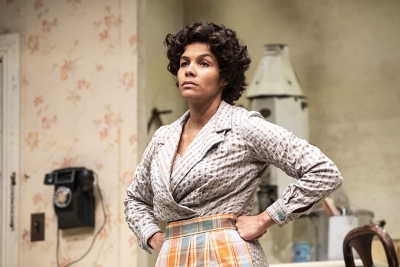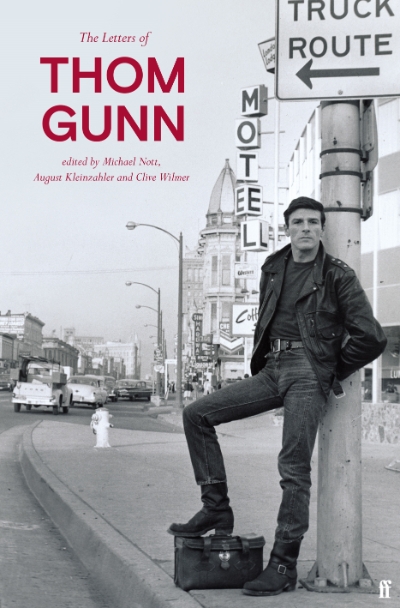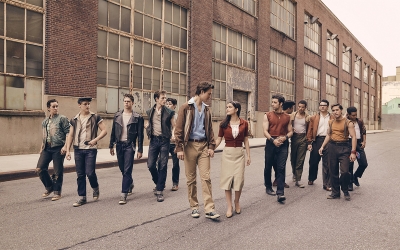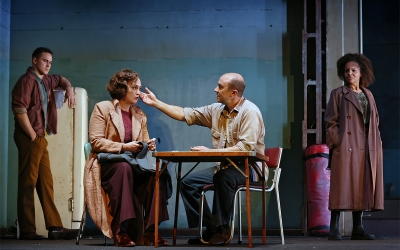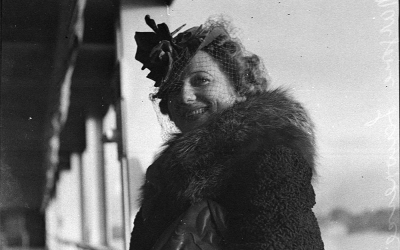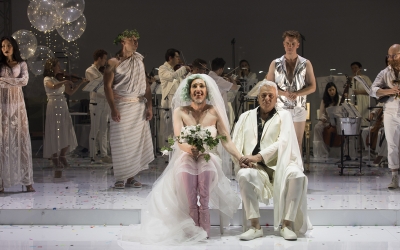Ian Dickson
To celebrate the year’s memorable plays, films, television, music, operas, dance, and exhibitions, we invited a number of arts professionals and critics to nominate their favourites.
... (read more)After its recent political and financial traumas, your correspondent arrived in London expecting to find a sombre, subdued city. Far from it. The Christmas lights were blazing in the West End, and on the weekends it was almost impossible to move while battling the hordes. But it was noticeable that few people were actually carrying shopping bags, and though the stores were crammed, the actual lines at the counters were remarkably short. The high-end restaurants were packed with pre-Christmas parties; after all, in London the rich you will always have with you. It may be my imagination, but the gaiety seemed slightly hysterical, as though this were a version of the duchess of Richmond’s ball – a last frolic before the onslaught.
... (read more)In the annals of theatre history, Lorraine Hansberry’s A Raisin in the Sun (which had its première in 1959, when she was only twenty-eight) will go down as the first Broadway play written by an African-American woman and directed by an African-American man. It would have been beaten a couple of seasons earlier by Alice Childress’s Trouble in Mind if the redoubtable Childress had not refused to allow her would-be producers water down her work, which portrayed the demeaning and frustrating position of Black actors forced into endless ‘yes’m, no sir’ shuck and jive roles.
... (read more)The Letters of Thom Gunn edited by Michael Nott, August Kleinzahler, and Clive Wilmer
Antonio Cesti and Giacinto Cicognini’s frisky opera, Orontea, begins with an argument between philosophy and love as to who is the stronger. Love heads off to Egypt to create havoc chez the Egyptian Queen Orontea, but at her steamy court the contest seems to be more between the opposing delights of lust and alcohol. Orontea’s determination to remain a virgin queen dedicated to her subjects quickly crumbles on the sudden appearance of the painter Alidoro ...
... (read more)Although America produced other alternative filmmakers of his generation like Kenneth Anger and Maya Deren, John Cassavetes (1929–89) would have to be considered the doyen of the movement. Directors as diverse as Martin Scorsese, Jim Jarmusch, Peter Bogdanovich, and Pedro Almodóvar have acknowledged his influence. Technically rough though they may sometimes be, Cassavetes’ films have a raw power that, in the words of Amy Taubin, ‘catch you up, turn you around, bore you a little, startle you, and throw you out upset and confused’. Opening Night (1977), a film that was undervalued when it first appeared and is now perhaps somewhat overvalued, is no exception.
... (read more)Steven Spielberg obviously relishes challenges. Tackling, at this late stage in his career, his first musical is challenge enough, but directing a remake of one of the most iconic filmed musicals since the talkies arrived might be considered a mixture of chutzpah and lunacy. Luckily, the result is, mostly, a successful mixture of hommage and re-evaluation.
... (read more)In his program notes, Kip Williams, artistic director of Sydney Theatre Company, talks about the need to ‘wrestle’ Arthur Miller’s great play ‘into the present’. But if ever there was a play that speaks, as the Quakers would say, directly to us in our condition, it is this one. When Miller wrote it, he assumed that the postwar boom would not last and that America would head back into another depression. In fact, the boom continued, and for the next thirty years the United States, albeit hesitantly, moved past the horrors of McCarthyism, Vietnam, and the brutal resistance of the south to the Civil Rights Act towards a more just and equitable society. But the election of Ronald Reagan and the last forty years of triumphant, unrestrained capitalism have led us to the Trumpian world where people are either winners or losers and are, in the gig economy, to paraphrase Willy Loman, eaten like an orange and thrown away like the peel. Miller’s play is a reminder that being human, in his words, ‘is something most of us fail at most of the time and a little mercy is eminently in order given the societies we live in’.
... (read more)Say the words ‘Australian opera singer’ and most people, if any names were to surface at all, would nominate Nellie Melba or Joan Sutherland. But for a country with a small population, Australia, since Melba’s début in 1887 at the Theatre Royal de la Monnaie in Brussels, has consistently punched above its weight in the production of successful classical singers. In the 1950s and 1960s, both Covent Garden and London’s alternative opera company, Sadler’s Wells, were studded with Australian singers, while in Paris, Menindee-born Lance Ingram, under the name Albert Lance, was for many years a leading tenor at the Paris Opera, partnering Maria Callas, among many others. Today singers such as Stuart Skelton and Nicole Car have major careers only slightly curtailed (one hopes) by the wretched virus.
... (read more)Jean-Philippe Rameau’s setting of Adrien-Joseph Le Valois d’Orville’s adaptation of Jacques Autreau’s then unpublished and unperformed play Platée must be considered one of the most tactless entertainments ever presented to celebrate a royal wedding. The story of the ugly, vain water nymph who is used as a pawn to salvage the rocky marriage of Jupiter and Juno was certainly not the usual bland extravaganza to be expected at such an occasion. It probably didn’t help that the Dauphin Louis’s bride, Maria-Theresa of Spain, was not considered conventionally attractive.
... (read more)


